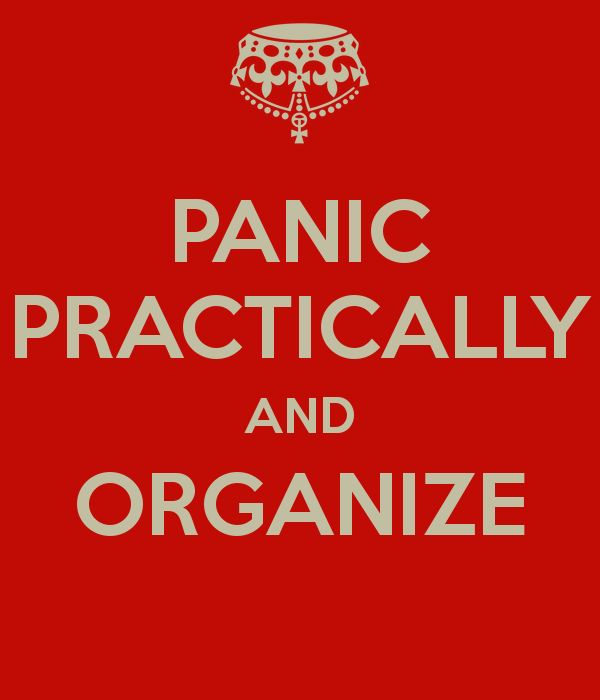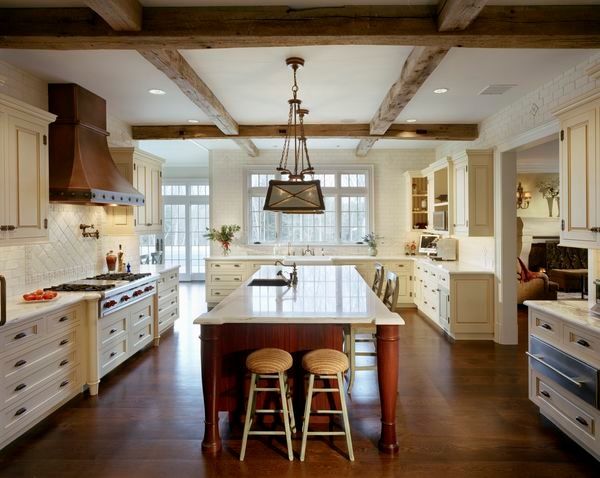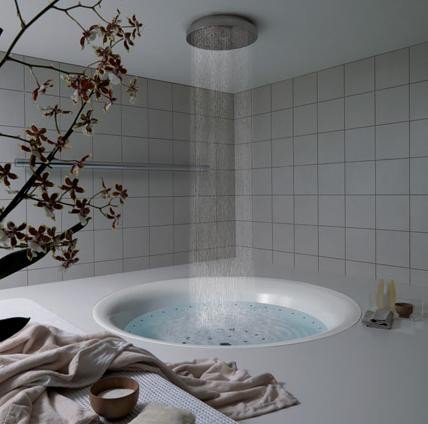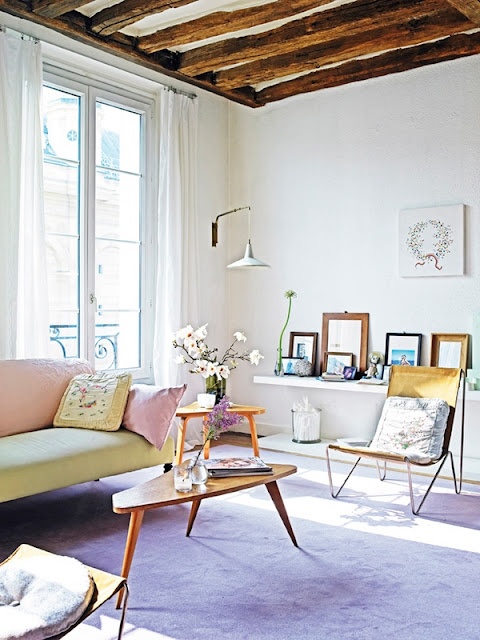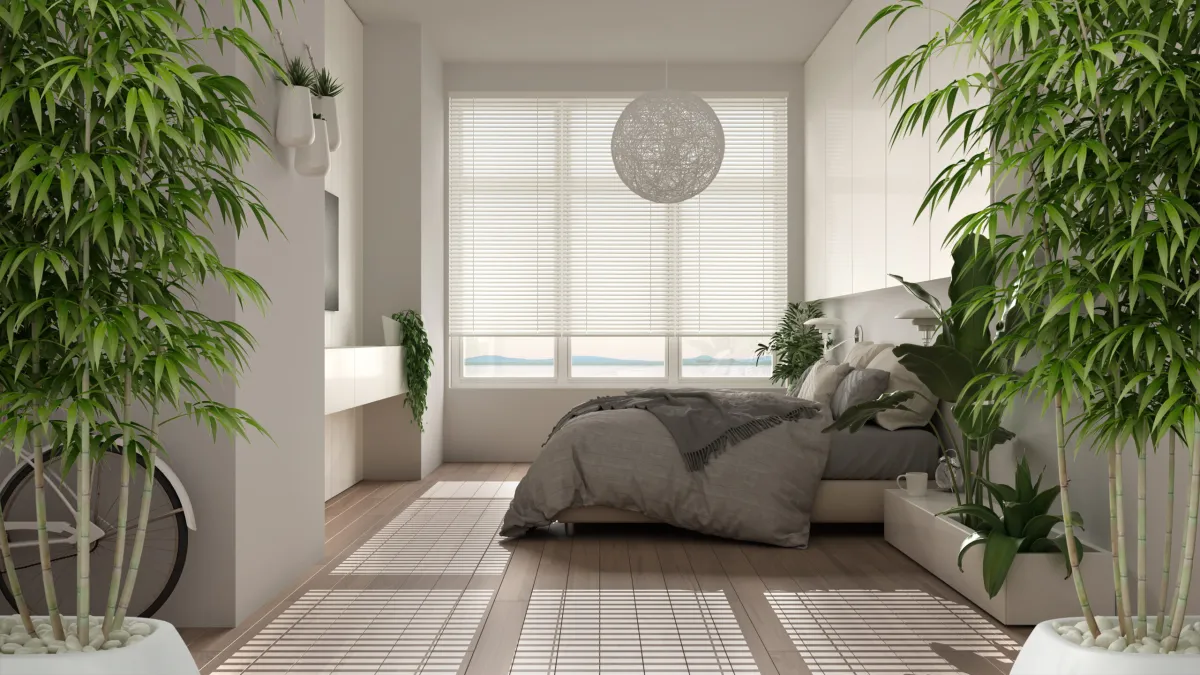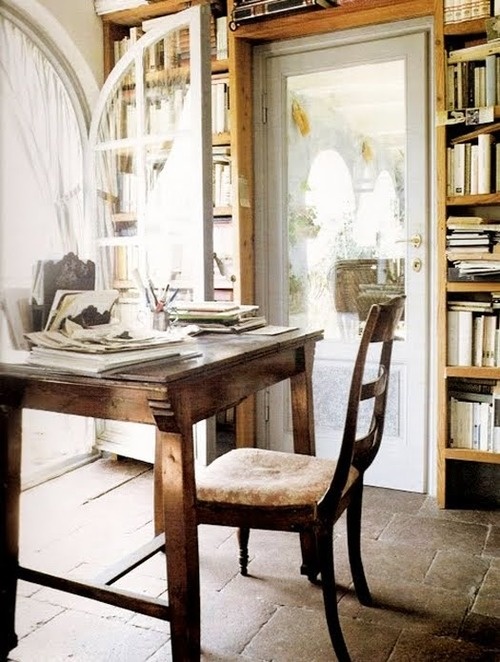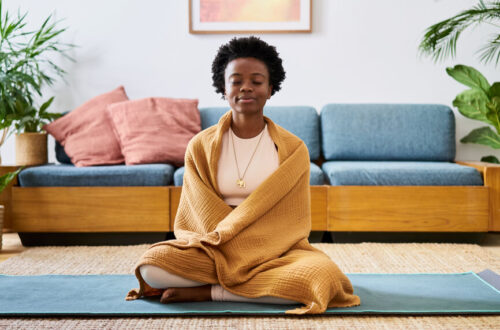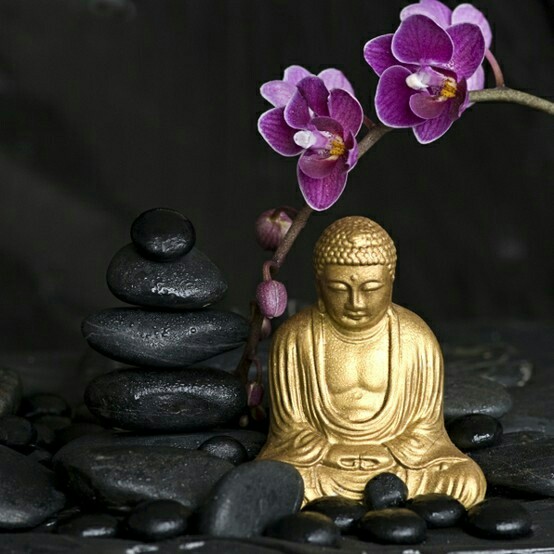
8 Feng Shui Tips to Improve Your Home and Life
Our home is a reflection of our inner subconsciousness and aspirations. The home is viewed as a single functional unit where all rooms of the house work together in Feng Shui. Much like our physical bodies which have separate parts, the rooms in our homes are like the organs in our body, inter-connected and interdependent but working together.
Feng shui is the art of establishing harmony in our home by promoting a better flow of chi. We can think of chi as similar to the flow of blood in our bodies bringing nutrients to our cells and organs. Chi has two energy components, yin – the female, and yang – the male.
Our home is a reflection of our inner state of being. In many ways — how we live can speak stories of how we are on the inside in our hearts and minds. Our home can show us signs of our inner being reflected through our living environment. When I started to study Feng Shui, I began to realize that there are energies surrounding us.
Feng Shui is the concept of mindfulness and living awareness. The awareness of the idea that we are energy and, therefore, energy flows within and around us. We must take advantage of this flow to help us become aware of what we manifest externally to the world.
We don’t have to be Feng Shui experts to benefit from this art. In fact, implementing just a few changes in our homes can make a fantastic difference in how we live and feel about ourselves.
Here are 8 ways we can use Feng Shui to help us live a better life inside and out.
1. Start by clearing the clutter.
The surge of the “Minimalism” movement has become vital in recent years. There are countless blogs on the Internet devoted to spreading the benefits of living a minimalist life. The idea of living with the bare minimum. I agree with most of its concepts but more so with the idea of clearing the clutter in our home.
We don’t often realize how bombarded we are with too many “things”. Our homes can become cluttered quickly since we live in a consumer society. We exchange our energy in the form of money to acquire things. To be more aware, we must become conscious about the things we buy and the things placement in our homes.
The TV show “Hoarders,” features people who are at the extremes when it comes to clutter. Their homes become buried with too many things. The show is a reflection of how we attach emotions to ‘things’ that we cannot bare to get rid of them. In the Harry Potter series, the villain Voldemort split his souls and stored them into 7 things. This is such an allegory for modern American life — are we really our things? Are we the owner of our things, or is it the things that own us?

We can start by clearing the clutter in our home. We must become vigilant and eliminate any ‘thing’ we no longer use. The minimalist principle states that the things you own should be at the bare minimum — only keep the stuff you need and use on a daily basis. We can get rid of the rest because they clutter our home.
When we remove clutter in our homes, we clear away stagnant energies. In Feng Shui, the things in our home are representative of energies we exchanged to acquire them. We should avoid storing items underneath beds, over-stuffing closets with clothes we barely use, and also leaving clutter on the floor.
We must become more organized by ensuring we have a place for the things we acquire in our home. We must also prevent clutter by placing back things we use into their proper place of storage.
Do you know how to spot someone with money problems? Walk into their homes. If it is too cluttered, chances are they will have money problems.
In Feng Shui, a cluttered home stifles the flow of chi. A messy home has stagnant energy, meaning no new energy can enter the house. Remember what happens to water when it stagnates? It becomes smelly and dirty. Feng shui principles embrace flow and rejuvenation of chi in our living spaces. Clear your home of clutter and watch your finances miraculously improve!
Free up all that energy by clearing your home of all clutter. Donate or trash items you no longer need or use. Please don’t keep them around the house because energy will become stagnant. Clear away clutter!


2. Start with the front door.
Feng shui places the entryway of our homes with great importance. It signifies where the chi enters our house (almost similar to the mouth in our body). It lays the foundation for the rest of our home’s energy. It’s crucial that the entrance of our homes be open from the outside, with nothing blocking the main access.
The front entrance of our homes should be properly maintained, painted, and free of debris and clutter. Often, having a garden with flowers or trees on the side of our homes will invite positive energy into our entryway. We must ensure our house entrance is easy to get to, and the energy when you approach your entryway should be happy and joyful. Remember, we attract energy in our entryway — a great beautiful, clean path to the entryway of homes that is free and joyful will bring that positive energy into our homes.


3. Know the importance of the kitchen.
In Feng Shui, the kitchen is given great importance. The kitchen symbolizes nourishment and vitality, taking in what you need. The Kitchen nourishes the soul and the body and should be well-organized and flow smoothly to encourage the proper flow of chi. You should promote feelings of warmth in the kitchen and bring it to life with fresh fruit and herbs. Explore colors and scents that are warm and inviting.
Our kitchen is where we gather to prepare food and to eat. The nourishment component is very important, therefore, we must ensure that our kitchen is always clean, earthy, and inviting. Our food comes from the ground — the kitchen should celebrate that by being grateful for mother earth’s abundance.
It is always great to invite more light into the kitchen by keeping it open to sunlight. The sun nourishes the earth — and inviting that light into the kitchen invites abundance.
Tables often represent nourishment — it is important that our dining tables be cleaned at all times and free of clutter.

4. The place of purity and rejuvenation.
The bathroom is an essential focus in Feng Shui. It is considered the place of rejuvenation and of letting things go. To release negative energy, your bathroom should be a room that is soothing, relaxing, and light. I often prefer bathrooms to be white, airy, and accessible.
When we take baths or use our restroom — we cleanse ourselves and rejuvenate our bodies and mind. A bathroom is a place for water. Water plays a great significance in Feng Shui — it is the bringer and cleanser of energy. Having mirrors in the bathroom is a great way to keep the flow of chi around.
Having candles and music when taking baths will also help rejuvenate our bodies and mind. If we must look for inspiration, our bathrooms should mimic a superb spa. A free flow and relaxing state, quiet, serene, and also carefree.
5. Attract abundance.
There is a great secret in Feng Shui to attract wealth and abundance, and have been used by many emperors and successful businessmen. Of course, this secret will attract wealth only if our living space has a free-flowing chi (see #1 clearing clutter). The secret is using water.
You can encourage abundance and wealth into your home or office by having the presence of water. Flowing water is best, as it symbolizes a stream of abundance and opportunities. That is why many Asian palaces are built on surrounding waterfalls. The sound of water flowing is a great therapeutic feeling.
Many ancient palaces have lakes filled with fishes. A koi fish has been known as a bringer of great fortunes. Having an aquarium, fountain, or water features in our offices or living rooms will create a flow of abundance.
6. Enhance positive energy.
In our living area — we can enhance positive energy flow by placing our furniture in a way that encourages accessible communication and getting together. We can make sure our living rooms invite this positive energy by placing them around placement.
Feng Shui practitioners often recommend avoiding sharp corners or furniture with sharp edges. For chi, when the energy flow hits a sharp edge, it bounces sharply and can become a blunt energy that could act as an opposing force in our home. We can compensate for this by placing plants or other round furniture to soften the flow of chi.
Placing plants or flowers will encourage health in our living rooms. We can place plants around corners of our homes to soften the edges and create a healthy flow of chi in our living rooms.
We should also remember to light dark corners in our living rooms and homes. Our home should invite more natural light by ensuring our windows let in the sun. If that is not possible, we can add extra soft lights to enhance the environment. A well-lit home invites clarity and ‘freeness’.
7. Love, rest, and rejuvenation.
In Feng Shui, the bedroom is where we rest after a long day. We enter our dream state and reconnect with the universe. It is essential that our bedroom should have a calming and relaxing energy. It is the energy of earthiness and airiness. It is crucial we free our bedroom from energy that is flowing too fast.
In that sense, we should keep away mirrors in our bedrooms. Mirrors often amplify chi. We should also ensure that our bedroom is well-lit during the day and dark at night. Our body’s natural state is to relax and sleep in the darkness. Having a great heavy curtain that blocks light will help keep us rejuvenated and help us enter the dream state quickly.
We should not put a TV in our bedroom. This will only mess with our natural state of rest and prohibits us from a restful rejuvenation. Leave the TV in the living room. Have books instead — they are great for relaxing at night and induce a slower, restful energy (depending on the books you read of course).
Our bedroom is also the place where we make love. If you are single and have a big queen-size bed — make sure you don’t sleep in the middle of the bed. If you would like to attract a mate, sleep on the side of the bed as if you’re preparing for your future lover to sleep on his or her side. When we prepare our living environment for a place for someone to be in it, we invite that energy into our life to materialize!

8. Curate your living space.
It is always vital that we become cognizant of what our space says about who we are. If you are a person that is sad all the time, look at your home and examine what you have projected into reality. Does the painting on your home show a person crying? Perhaps it’s time you take out that painting and replace it with a happy one.
We must realize that we subconsciously project and re-affirm our current state of being in our living environment. If you want to become more abundant, invite the Feng Shui principles of abundance and free-flowing chi into your home. If you wonder why you constantly argue with your family, look at how your living room is arranged. Does it convey warmth, and are the energies flowing smoothly, or do they become jagged and sharp? If so, make the necessary corrections and watch it reflect positively and beautifully in your life.
Feng Shui is an amazing art of managing our environment by becoming more aware. Many people may dismiss this art but try it on yourself first. Feng Shui has existed for thousands of years — and know this. The Chinese art of acupuncture poses that there is electricity in our bodies that can be manipulated and fixed by sticking needles on the surface of our skin. Only a couple of hundred years ago, this art affirmed that there is indeed electricity flowing through our bodies.
Feng Shui poses that we are made of energy, and energy flows through us and around us — and it is more apparent in our living environments like our home. I hope that you take this message and learn from it.
Here is a quick and dirty guide to Feng Shui layouts and room-by-room design.


